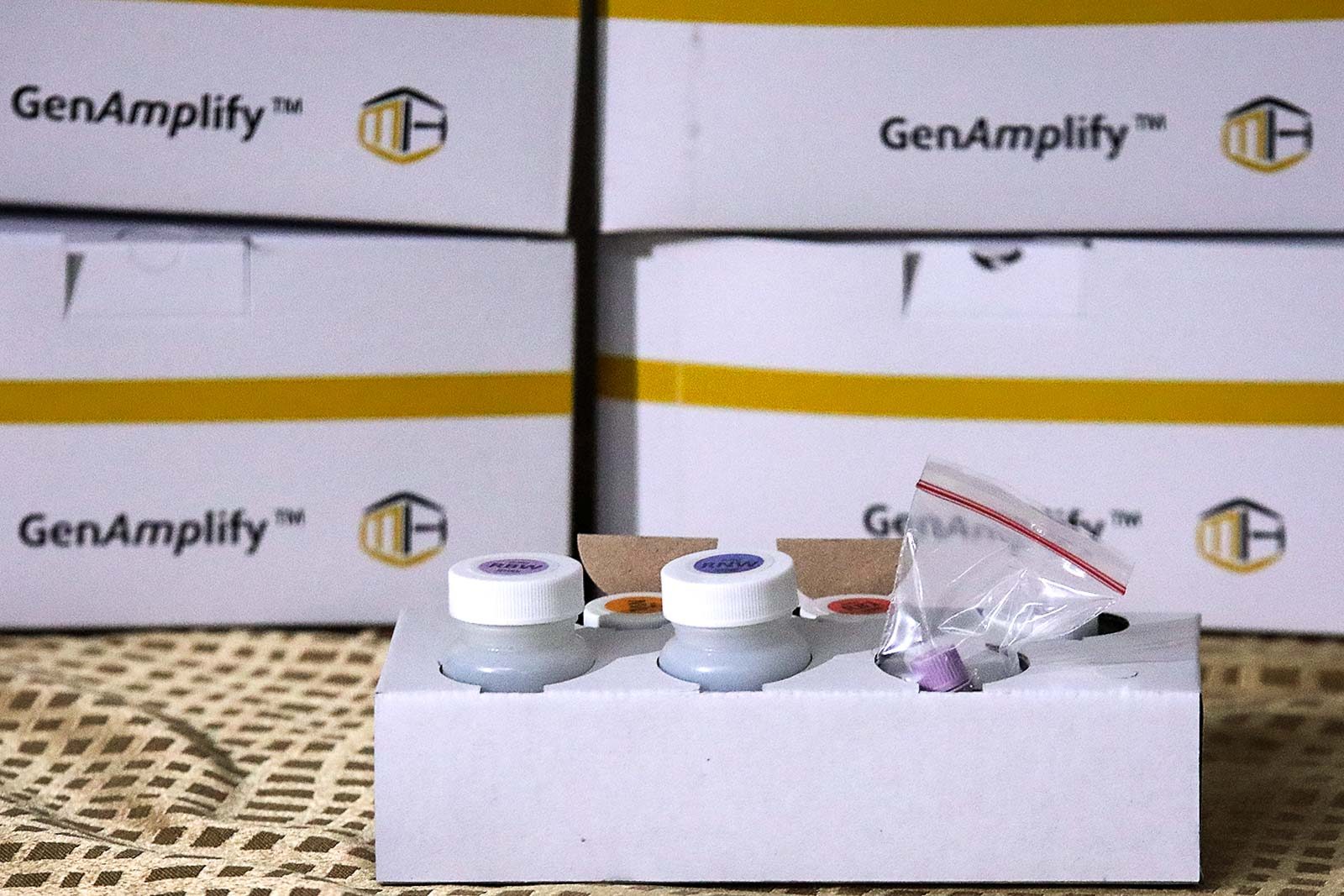SUMMARY
This is AI generated summarization, which may have errors. For context, always refer to the full article.

MANILA, Philippines – The National Economic and Development Authority (NEDA) recommended “widespread” testing for the novel coronavirus as it unveiled a 3-point plan to ease the impact of the health crisis on the economy.
“The key to a successful medical response is widespread testing,” Socioeconomic Planning Secretary Ernesto Pernia said in NEDA’s report released on Tuesday, March 24. (READ: #MassTestingNow: Online petition calls for urgent action on PH coronavirus outbreak)
“A patient who is diagnosed earlier could be given care to prevent secondary infections. Moreover, early diagnosis will lead to early initiation of quarantine procedures and, therefore, limit or prevent the spread of the virus,” NEDA said.
Due to lack of test kits, the Department of Health implemented a decision tool that is supposed to prioritize testing for persons manifesting severe symptoms and have either traveled to a country with local transmission or have been exposed to a positive case.
But several asymptomatic politicians and VIPs were able to get tested immediately, with their results released ahead of ordinary Filipinos – most of whom now have to wait for about a week for their COVID-19 test results.
NEDA pointed out, though, that the cost of testing might overburden the Philippine Health Insurance Corporation and crowd out PhilHealth funds for non-COVID-19 cases.
Usual sources of test kits would also be constrained given the huge global demand.
Coordination
NEDA released a 3-step plan to contain the spread of COVID-19 and mitigate its socioeconomic impact. These are:
Phase 1a: Clinical/medical response. This involves early detection and diagnosis, effective quarantine systems, effective management and treatment protocol, research and epidemiological studies, and ensuring easy mobility of human resources for health.
This step also involves providing care or treatment at the early stages of the disease, isolating persons under monitoring and persons under investigation from the non-infected population, and research.
Phase 1b: Public health response. This step recommends travel bans, promoting proper hygiene, bans on crowded gatherings, school closures, work suspensions, flexible work arrangements, work continuance in essential sectors, and enforcement of the rule of law.
“The Amelioration Fund of the Department of Labor and Employment is worth P1.5 billion, which can cover 300,000 workers. The Unconditional Cash Transfer has an appropriation of P36 billion under the 2020 General Appropriations Act, which covers 10 million individuals,” NEDA said.
Phase 1c: This entails short-term augmentation of health systems capacity. NEDA recommended setting up makeshift outpatient consultation facilities and the establishment of quick referral protocols.
This step also deals with the increased supply of personal protective equipment and hospital equipment, increased remote quarantine facilities, and industries shifting production activities toward needed items.
Phase 2: Rebuild consumer and business confidence. Once the lockdown is lifted, NEDA said reduced economic activity is expected. The best way to address this is to assure the public of adequacy of improved health care systems.
Phase 3: Resume a new normal state of economic activity that is more prepared for another possible pandemic.
As of Tuesday, March 24, the total number of coronavirus cases in the Philippines stood at 552, 35 of whom died, while 20 recovered. – Rappler.com
Add a comment
How does this make you feel?





There are no comments yet. Add your comment to start the conversation.